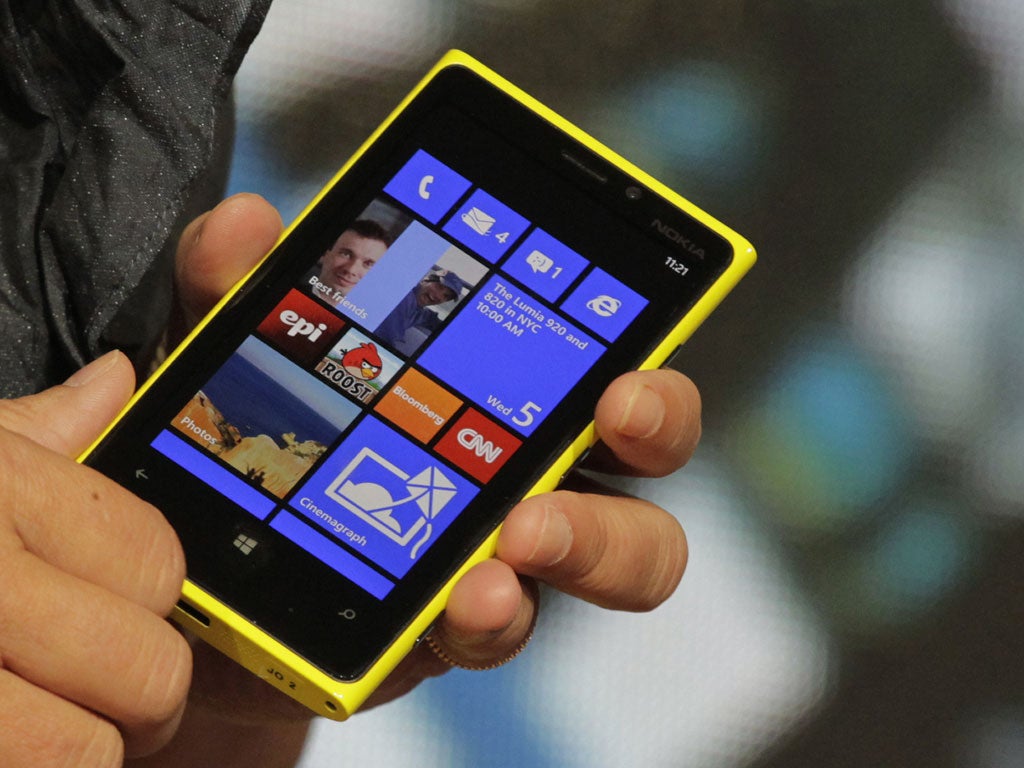Mobile wars: Stakes are high for Apple with iPhone5 launch as rivals catch-up
Apple is set to launch its new phone and it faces a battle to stay ahead of the game with cheaper rivals snapping at its heels

Apple's design guru, Sir Jonathan Ive, confessed recently that the original iPhone almost didn't launch. "There were multiple times where we nearly shelved the phone because we thought there were fundamental problems that we can't solve," recalled Sir Jony in London in a rare interview.
For Sir Jony, design perfection is everything and he has a track record with the Mac, iPod, iPhone and iPad to prove it. So the hype is building for the launch of iPhone5 next Wednesday.
Apple is famed for its secrecy, so few details have emerged, although a bigger, thinner screen is expected, after the success of rival Samsung's Galaxy range. There have also been reports that Apple could be introducing a custom-radio service to rival the US service Pandora.
The stakes are high for Apple because Wall Street expects it to sustain the momentum that meant it sold a record 26 million iPhones in the past three months.
Apple revolutionised the mobile market in 2007, confounding established companies such as Nokia and BlackBerry maker Research In Motion, which are still struggling. But five years on, the technology gap is closing as some other players play catch-up and, crucially, they are undercutting Apple on price.
"The days of the iPhone being miles ahead in terms of innovation are gone," says James Hilton, chief executive of M&C Saatchi Mobile.
What's more, this is a market that offers vast potential. Globally, analysts reckon it could grow to 1.5 billion devices a year by 2015.
In a sign of the intense competition, there is a slew of product launches this autumn. Last week, Samsung, which has overtaken Apple to become the world's biggest smartphone company in volume terms, unveiled a new Galaxy Note 2, dubbed a "phablet" as it is a cross between a phone and tablet.
This week, Nokia launched its Lumia 920 smartphone, with an "augmented reality" camera, to an admittedly lacklustre reception. Then Amazon revealed a big push into "mini-tablets" with its seven-inch Kindle Fire. And Canadian e-reader firm Kobo (which has a deal with WHSmith in the UK) unveiled what it claims is the world's smallest, lightest e-reader, which is five inches long and costs under £60.
In addition to Apple next week, HTC is launching a new mobile in New York the week after. And then there's Google, which has not only got its Nexus tablet but is also behind the "open" Android operating system, which is being used by so many of Apple's main rivals, notably Samsung.
In some ways, Amazon's announcement on Thursday was the most interesting this week even though the online retail giant did not produce a much-rumoured Amazon smartphone. The flagship is the new Kindle Fire HD, a high-definition seven-inch tablet.
Jorrit Van der Meulen, vice president of Kindle Europe, said it is being priced "very, very aggressively" from £159 in the UK. Part of the reason for the low price is because Amazon is keen to encourage consumers to buy content once they have got the device. Without much fanfare, Amazon launched its own app store in the UK last week and Kindle owners can now access apps, music and films from its LoveFilm service more easily, a clear challenge to Apple.
Mr Hilton of M&C Saatchi Mobile says: "With Amazon's host of services including their revolutionary app store (free paid-for app a day) and the announcements about their upgraded tablets and multiple-sized new Kindles, clearly they are taking this market very seriously."
What the new products from Amazon, Samsung, Kobo and others make clear is that with the rise of the "mini-tablet" and "phablet", the phone and tablet market is converging.
For those who wonder whether Apple might be fallible without its founder Steve Jobs, who died almost a year ago, it is worrying that the company has not yet come up with its own mini-iPad, although a launch is rumoured to be on the cards in October, and might even be a surprise next Wednesday.
The dangers for Apple have been underlined by Samsung's decision to launch the Galaxy S3, with a bigger screen and satisfying touchscreen, in May.
Sales have been booming as it has stolen a four-month head start over the iPhone 5.
Moreover, Samsung's range of cheaper phones means it can scoop up some of the wider mass market. Others rivals such as HTC, RIM and Nokia are lagging badly, with profits and revenues under continued pressure. Their challenge is to start producing devices again that consumers want.
Mr Hilton says it is a mistake to write any of them off: "Innovation has to be at the forefront of anything they do but with the smartphone and tablet market being in its infancy clearly anything is possible."
Now Apple is looking to Sir Jony and his design team for some real magic. "We're both excited and nervous around what's new," said Sir Jony in that interview. "Doing anything that's new that's great is very, very hard."
Join our commenting forum
Join thought-provoking conversations, follow other Independent readers and see their replies
Comments
Bookmark popover
Removed from bookmarks